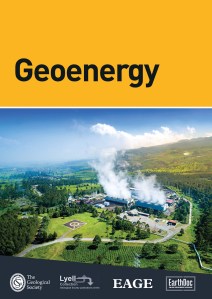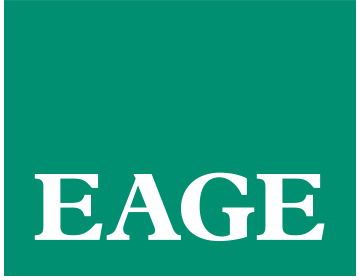Geoenergy is calling for a range of articles that recognise and demonstrate the knowledge base relating to critical and strategic raw materials for the energy transition, from an African perspective, to be published in the thematic collection ‘The minerals-energy nexus in Africa’.
 Africa has a wealth of energy-critical resources and the nature of the resources (oil and natural gas, uranium, critical metals, and bulk transition metals), their surface or subsurface location, and international demand dictate whether raw materials are a curse or a blessing (Tetzlaff 2022). The extraction of raw materials is exchanged for environmental damages and accelerating waste generation (Valenta et al. 2023). This ecologically unequal exchange intersects with raw materialism, which integrates global and local natural and social processes in a competition between economies, to secure access to growing volumes of raw materials at lower costs (Ciccantell 2018). The designation of raw materials as ‘critical’ is an action of raw materialism in industrialized economies and an admission of dependence on resource-rich nations. The Africa Mining Vision (AMV) lays out Africa’s own response to the paradox that mineral wealth does not create local and regional benefits. The AMV has the aims of increasing knowledge-based services as well as protecting mining workers and communities, and their environment.
Africa has a wealth of energy-critical resources and the nature of the resources (oil and natural gas, uranium, critical metals, and bulk transition metals), their surface or subsurface location, and international demand dictate whether raw materials are a curse or a blessing (Tetzlaff 2022). The extraction of raw materials is exchanged for environmental damages and accelerating waste generation (Valenta et al. 2023). This ecologically unequal exchange intersects with raw materialism, which integrates global and local natural and social processes in a competition between economies, to secure access to growing volumes of raw materials at lower costs (Ciccantell 2018). The designation of raw materials as ‘critical’ is an action of raw materialism in industrialized economies and an admission of dependence on resource-rich nations. The Africa Mining Vision (AMV) lays out Africa’s own response to the paradox that mineral wealth does not create local and regional benefits. The AMV has the aims of increasing knowledge-based services as well as protecting mining workers and communities, and their environment.
Scope
The research approaches that will be accepted include:
- Petrology and geochemistry of mineral occurrences and ore deposits in Africa where energy-critical commodities are of primary or by-product interest.
- Geometallurgical approaches to investigating African ore deposits, and environmental impacts along the exploration-extraction-processing value chain.
- The role of geological and numerical modelling in characterising ore bodies.
- The nature of extractive wastes and their potential to create socio-environmental harm and/or provide economic opportunity.
- Societal, economical, and policy issues for critical raw material exploration and exploitation.
- The role of knowledge-based institutions, such as Universities and Geological Surveys, in providing geological information top industry and developing resource-based policy.
- Life Cycle Analysis and resource management strategies to foster more responsible sourcing of energy critical raw materials from African ore bodies.
- The impact of global warming and extreme weather events on local extractive operations, and health and safety of workers.
Submission
Full author guidelines can be found online.
Submission should be made via the Geoenergy Editorial Manager website.
When submitting manuscripts make sure to identify the submission as being for ‘The minerals-energy nexus in Africa’ collection by selecting it from the ‘Section/Category’ drop-down list.
Submission deadline: 30 April 2025
Submission and publication in Geoenergy is free of charge.
Authors may choose to make their article fully Open Access (sometimes called ‘Gold Open Access’) upon paying an Article Processing Charge (APC). Full details can be found here.
Guest Editors
- Annock Chiwona (Geological Survey, Malawi)
- Michael Musialike (Copperbelt University, Zambia)
- Ishmael Quaicoe (University of Mines and Technology, Ghana)
- Gabriel Ziwa (Copperbelt University, Zambia)
Contact
For any queries contact the Geoenergy journal office.
References
- Ciccantell, P.S. [2018]. Ecologically unequal exchange and raw materialism: The material foundations of the capitalist world-economy. In: Frey, R.S., Gellert, P.K. et al. (eds) Ecologically Unequal Exchange: Environmental Injustice in Comparative and Historical Perspective Palgrave Macmillan, pp. 49–73, https://doi.org/10.1007/978-3-319-89740-0_3
- Tetzlaff, R. [2022]. Resource Wealth: Curse or Blessing? Africa: An introduction to history, politics and society. Springer, Wiesbaden, pp. 217–241, https://doi.org/10.1007/978-3-658-34982-0_11
- Valenta, R.K., Lèbre, É., Antonio, C., Franks, D.M., Jokovic, V., Micklethwaite, S., Parbhakar-Fox, A., Runge, K., Savinova, E., Segura-Salazar, J., Stringer, M., Verster, I. and Yahyaei, M. [2023]. Decarbonisation to drive dramatic increase in mining waste–Options for reduction. Resources, Conservation and Recycling, 190, 106859, https://doi.org/10.1016/j.resconrec.2022.106859






